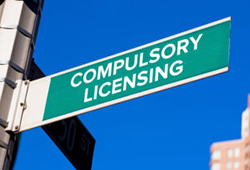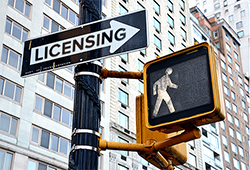Compulsory Patent Licensing in Response to COVID-19: Recent International Developments
 Can a government authorize the production of a COVID-19 vaccine without the consent of the patent holder? The answer is likely yes, depending on which country you are in.
Can a government authorize the production of a COVID-19 vaccine without the consent of the patent holder? The answer is likely yes, depending on which country you are in.
The Agreement on Trade-Related Aspects of Intellectual Property Rights (TRIPS) provides a mechanism for member states to authorize themselves or third parties to produce a patented product without the express consent of the patent holder through the grant of compulsory licenses.
In response to the COVID-19 pandemic, several countries have already taken steps to facilitate compulsory licensing. In March, Canada[1], Germany[2] and France[3] amended their laws to make it easier to issue compulsory licenses, Ecuador[4] and Chile[5] passed resolutions to encourage the use of compulsory licenses, and Israel issued a compulsory license to import from India a generic version of AbbVie’s patented product Kaletra for the treatment of coronavirus patients, which has since then been proven to be an ineffective treatment.[6]
More recently, on the basis of national security, Pharmasyntez, a Russian pharmaceutical company, is seeking a compulsory license from the Russian government to manufacture a generic version of Gilead’s patented COVID-19 drug remdesivir without Gilead’s consent.[7]
A compulsory license, however, may not always be necessary. Following Israel’s issuance of the compulsory license for Kaletra, in an official company statement, AbbVie announced its intention to dedicate to the public its intellectual property related to Kaletra[8], and in October 2020, Moderna announced that while “the pandemic continues, Moderna will not enforce our COVID-19 related patents against those making vaccines intended to combat the pandemic”[9].
Whether reliance on compulsory licenses will be necessary in order to ensure access to COVID-19 vaccines remains to be seen. However, the use of compulsory licenses should be carefully considered, as patent protection is one of the main economic incentives to innovate, particularly in the pharmaceutical field, where the average cost of bringing a drug to market is estimated to be close to 1.3 billion dollars.[10]
_______________________________________________________________________________________
[1] https://laws-lois.justice.gc.ca/eng/AnnualStatutes/2020_5/
[2] https://www.gesetze-im-internet.de/ifsg/index.html?_sm_au_=iVVvns5WHQ11sMDPvMFckK0232C0F
[3] https://www.legifrance.gouv.fr/codes/id/LEGIARTI000042103698/2020-07-11/
[4] https://www.keionline.org/wp-content/uploads/ES-Ecuador-CL-resolution.pdf
[5] https://www.keionline.org/wp-content/uploads/resolucioncoronavirus.pdf
[6] https://www.reuters.com/article/us-health-coronavirus-israel-drug-idUSKBN216237
[7] https://www.reuters.com/article/us-health-coronavirus-russia-remdesivir/russian-firm-seeks-to-produce-covid-19-drug-remdesivir-without-patent-idUSKBN27I0QH
[8] https://news.bloomberglaw.com/pharma-and-life-sciences/abbvie-to-allow-use-of-intellectual-property-for-coronavirus
[9] https://investors.modernatx.com/news-releases/news-release-details/statement-moderna-intellectual-property-matters-during-covid-19
[10] https://www.biospace.com/article/median-cost-of-bringing-a-new-drug-to-market-985-million/
